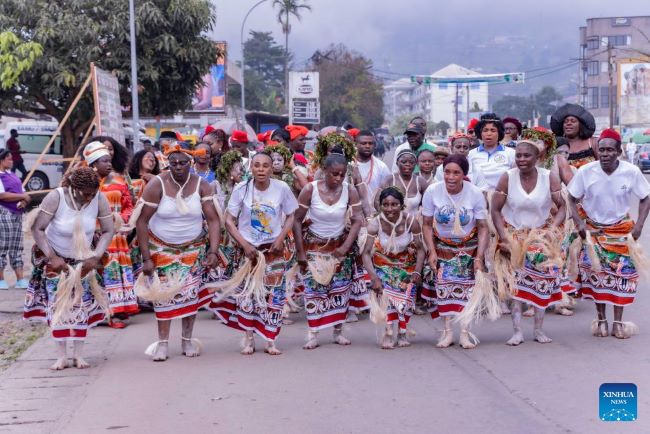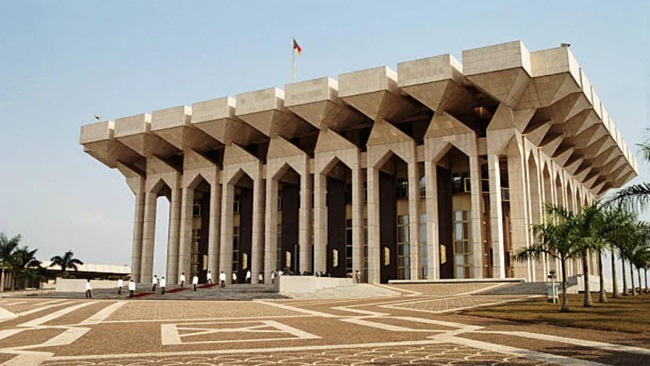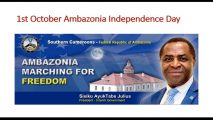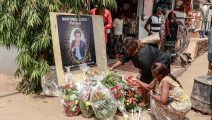12, March 2017
Southern Cameroons Crisis: Part of the solution is the removal of Biya from office 4
After four months of inactivity, the so-called members of parliament and senators will resume their hand clapping exercise on Monday the 13 of March 2017 in Yaoundé. This first parliamentary session of the year will of course begin in a particular context, marked by the crisis in Southern Cameroons that has shaken the Biya Francophone regime and for the first time in 34 years prevented the 84 year old dictator from travelling out of the country.
For four months, the Francophone regime has failed in stopping the Southern Cameroons uprising and day-by-day after the Prime Minister Philemon Yang’s recent tour of the Bamenda province of West Cameroon, it is evidently clear that the Cameroon Anglophone Civil Society Consortium and the people of Southern Cameroons are winning and secession is indeed at the door of Cameroon.
The measures taken by the Beti Ewondo ruling think thank have been crude, intolerable, unbearable, unacceptable and at best primitive. And this is due to the fact that the tank they think from is too shallow. The shutting down of the internet services in West Cameroon was aimed at cutting off communications between Southern Cameroonians back home and those in the Diaspora. From every indication, the policy failed woefully and instead recruited genuine CPDM followers into the resistance.
The Anglophone crisis will be at the center of discussions in both the Upper and Lower Houses. Ghost town operations will continue tomorrow Monday as many Southern Cameroonians including some Francophone political elites now believe and fervently too that Paul Biya himself does not want the crisis to be resolved.
Correspondingly, MPs and Senators will pretend on camera to question members of government on the Southern Cameroons situation. The cabinet ministers are all Francophone citizens who are obviously reading from the same script with the man who appointed them into government. Consequently, Southern Cameroonians would be watching CRTV as a foreign news channel during the parliamentary debates.
The general understanding is that if these MPs and Senators were truly the representatives of the Cameroonian people, they would have condemned the rapes, extra judicial killings, massive arrests and abductions going on in Southern Cameroons. Above all, they would have during their last session in November 2016, focused their concerns on the situation of the Anglophone lawyers and teachers including the students of the University of Buea.
Their failure to stand up as a group and be counted led to the transformation of the corporate crisis into a political issue. To save Cameroon from disintegrating as a nation, the National Assembly should legislate on matters related to the resolution of the Anglophone problem. The MPs should bear in mind that part of the solution to the Anglophone crisis is the removal of President Biya from office not any form of CPDM process of decentralization.
By Soter Tarh Agbaw-Ebai



























12, March 2017
Anglophone Crisis: Too much uncertainty inside the Biya regime 1
The plenary session of both the so-called Upper and Lower Houses of parliament begins on Monday March 13, 2017. As a tradition, the election of the bureau members takes place at the first session of every legislative year. This year’s maiden parliamentary sessions have been convened by both the President of the National Assembly, Cavaye Yeguie Djibril and the President of the Senate Marcel Niat Njifenji.
In the context of a crisis that has rocked the Anglophone regions of the country since the end of 2016 and the Francophone dominated government’s inability to find a solution, it would not be surprising to see some political adjustments in the Biya regime. However, the question that arises mainly is who should be sacrificed between Cavaye Yeguié Djibril and Marcel Niat Njifenji, if the head of state wants to satisfy the Anglophones?
Understandably, the Cameroon Anglophone Civil Society Consortium has made it clear that the current Southern Cameroon political elites of the ruling CPDM no longer represent the aspirations of West Cameroonians. However, the Yaoundé regime still intends to try its last joker.
Using their old guerilla tactics, the Presidency of the Republic is already circulating the name of Peter Mafany Musonge as President of the Senate. The Biya men reportedly observed that Simon Achidi Achu is currently very old and weak. A reliable source hinted Cameroon Concord News that the post of Prime Minister will return to the Far North and added that the personality most foretold to this post Is Alamine Ousmane Mey, current Minister of Finance.
A journalist with a sister publication, Cameroon Intelligence Report quoted a source in Paris in the case of a constitutional revision, for the introduction of the post of Vice-President of the Republic. What we know is that several possibilities could arise for possible appointments which will have no impact on the Southern Cameroons quest for an independent state.
By Rita Akana